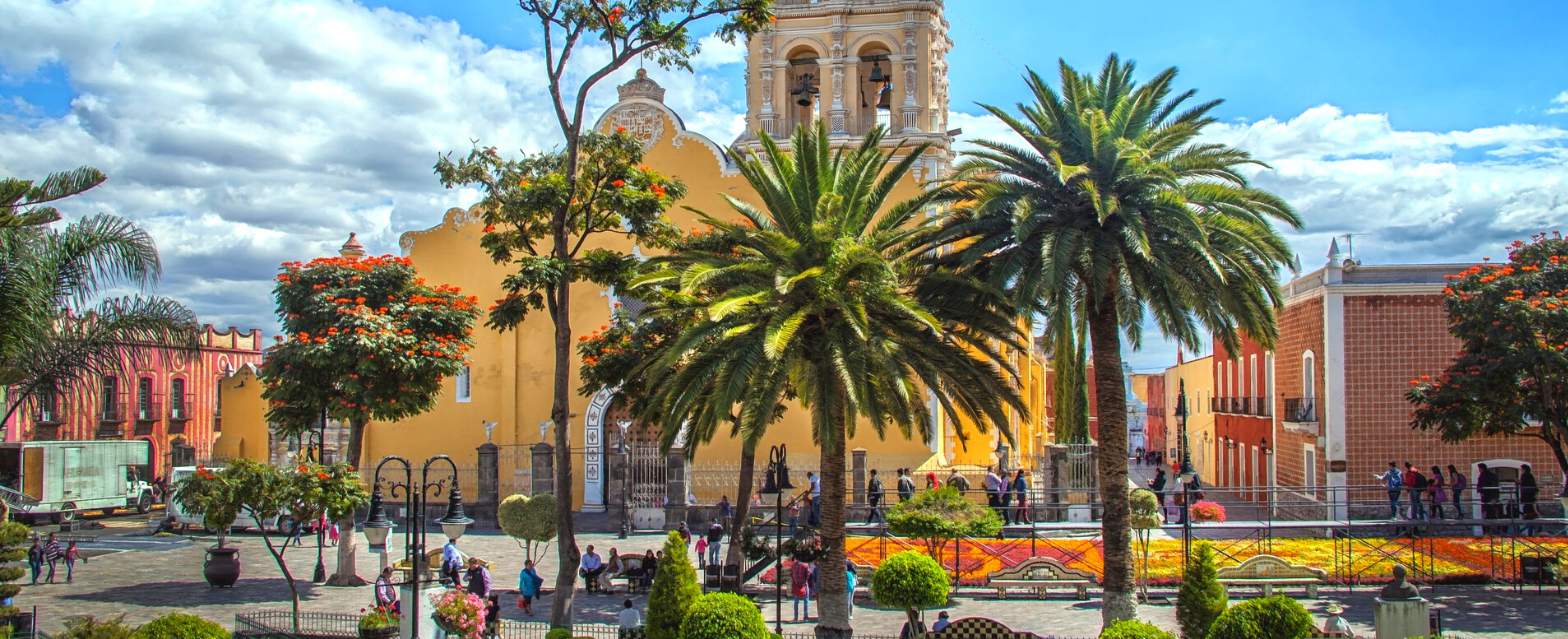There is a diverse range of expat communities in Mexico, offering vibrant cultural experiences and a wealth of opportunities for those looking to settle abroad.
Whether you’re drawn to the bustling city life of Mexico City, the jaw dropping landscape of Cabo San Lucas, or the tranquil beaches of Puerto Vallarta, you’ll find a welcoming expat network ready to help you find your ideal place in Mexico. Each region has its unique charm, blending local traditions with international influences.
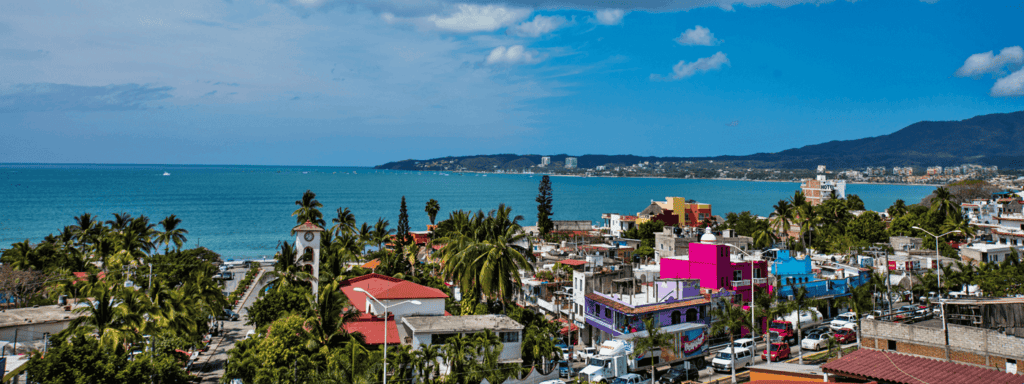
Living in Mexico as an expat means embracing a lifestyle that balances modern amenities with rich cultural heritage. You can explore colorful markets, indulge in delicious cuisine, and participate in festivals that showcase the country’s storied history. These communities provide support and companionship, making it easier for you to immerse yourself in local life.
Many who have lived in a foreign country find Mexico an ideal choice due to its combination of affordability and cultural richness.
The cost of living in Mexico tends to be lower than in many Western countries, making it an attractive option for retirees, digital nomads, and families alike. From affordable healthcare to pleasant climates, there are numerous practical benefits that make Mexico a favored international living destination for expats worldwide. With an open mind and a sense of adventure, you’ll find that Mexico offers a fulfilling experience that continually captivates.
Popular Expat Communities in Mexico
Mexico is home to several vibrant cities and towns that appeal to so many. These areas offer unique cultural experiences and attract international residents with their appealing amenities, climates, and lifestyle options.
Lake Chapala Region
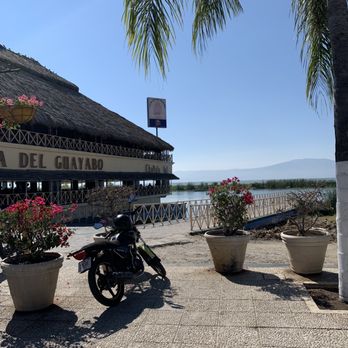
The Lake Chapala area is known as one of the biggest expat communities in Mexico, especially retirees. Its pleasant climate and low cost of living make it attractive. Located in the central highlands of Mexico, the town of Ajijic is often regarded as a best place to live and offers charming cobblestone streets, colorful markets, and numerous social activities. This is one of the top places amongst retirees worldwide to live in Mexico. Other towns like Chapala and Jocotepec are also expanding and quickly becoming a top choice for many. Local clubs and social events are plentiful.
You’ll find English-speaking services readily available, making daily life more convenient. Enjoy stunning lake views and outdoor activities like hiking and birdwatching. And the year-round cultural festivals add vibrant experiences that bring life to the area.
Riviera Maya
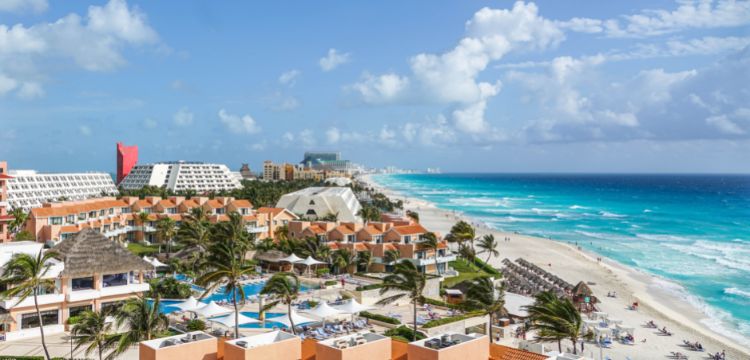
The Riviera Maya features beautiful beaches and a warm climate year-round. This stretch of Caribbean coastline includes popular beach towns like Playa del Carmen, or an hour away is Cancun or Tulum. It’s ideal if you love beach life, with activities like snorkeling, diving, and exploring cenotes. The natural beauty, along with the daily sunny weather, make it an ideal place to live for those who are tired of winters.
Tourism drives the local economy, creating job opportunities in hospitality. You can find numerous expat meetups and international schools. Attractions like ancient Mayan ruins provide rich history to explore. Housing options range from beachfront condos to luxury homes. The newly built Tren Maya will surely attract even more investment and tourism to the area in the following years.
San Miguel de Allende
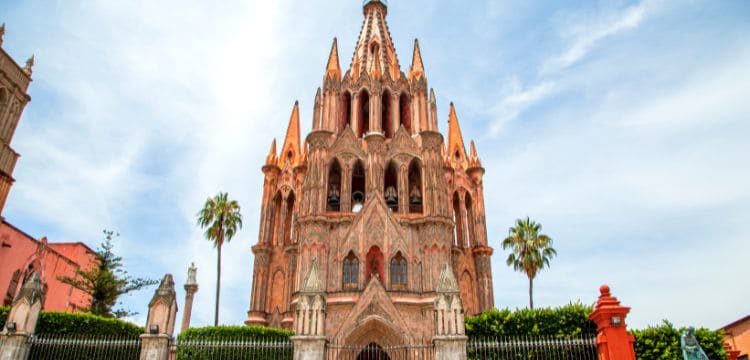
San Miguel de Allende or SMA as some locals know it, is renowned for its colonial architecture and artistic atmosphere. A UNESCO World Heritage site, this beautiful city in Mexico draws many creatives and retirees. The vibrant arts scene is complemented by numerous galleries, workshops, and festivals. If you ask 100 people thinking of moving to Mexico, about half of them will say that this is the best place to live.
The cobblestone streets and historic buildings create a picturesque setting. A mix of international cuisine is available at local restaurants. You’ll enjoy an active social life, with many events and workshops fostering community engagement. Health services in both English and Spanish boost convenience. Living in San Miguel de Allende is considered to be a top place to live because of its charm, weather and community.
Mexico City
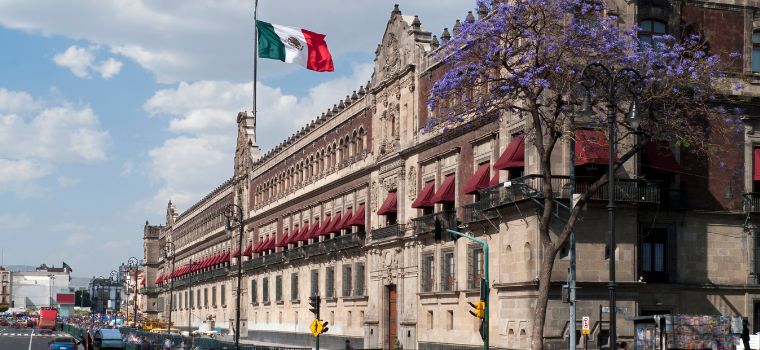
Mexico City (aka CDMX), the nation’s capital, is culturally rich and offers urban living with a diverse mix of neighborhoods. It attracts professionals seeking career opportunities in a dynamic economy. From arts to culinary delights, the cultural scene is unparalleled.
The city provides exceptional public transportation and many modern amenities. Has the best hospitals in the country with the latest technology. English-speaking communities exist, but knowing Spanish enhances the experience for sure. Historic landmarks and museums abound, offering endless exploration opportunities. Consider various housing options, from apartments to suburban homes- there is something for everyone in Mexico City.
If you’re looking for an expat community in Mexico in a city that has it all, look no further than Ciudad de Mexico (Mexico City).
Los Cabos
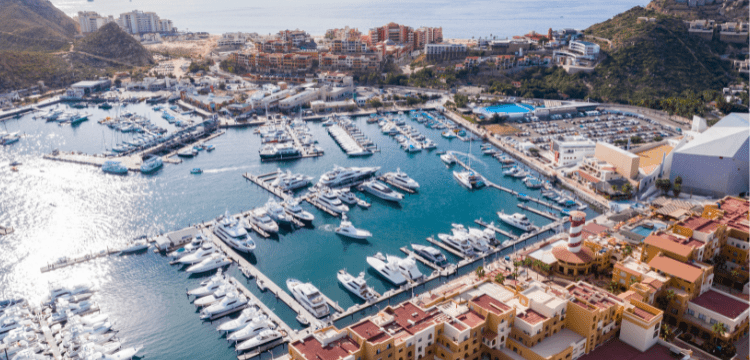
Los Cabos, which includes Cabo San Lucas and San José del Cabo, is famous for its luxury lifestyle, stunning desert-meets-ocean landscapes, and vibrant nightlife. And only 2nd to Lake Chapala, Los Cabos is probably one of the most popular expat communities in Mexico. This region is a hotspot if you want to enjoy world-class amenities while living in a tropical paradise.
Outdoor activities abound, from golfing at renowned courses to deep-sea fishing, whale watching, and exploring iconic sites like El Arco. The area is one of the most up-and-coming expat communities in Mexico and has a variety of housing options, from luxury villas to modern condos. While the cost of living is higher here, many find the breathtaking views and resort-like atmosphere well worth it.
Rosarito
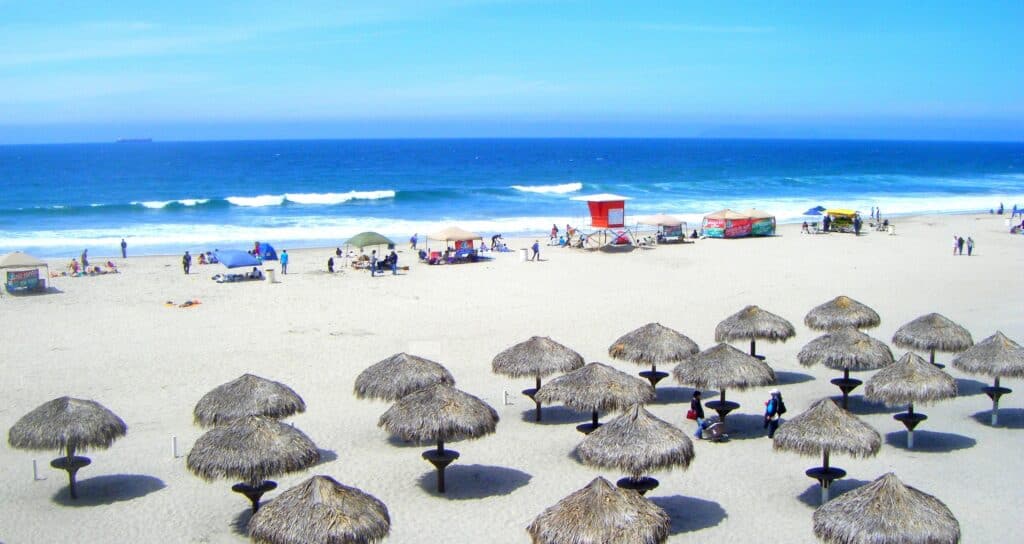
Located just a short drive from the U.S. border, Rosarito is a popular destination for expats seeking a coastal lifestyle without straying too far from home. Known for its stunning Pacific views, lively atmosphere, and excellent seafood, Rosarito offers a more affordable alternative to its neighbor, San Diego.
Rosarito has a large expat community in Mexico, making it easy to find English-speaking services and social groups. The area is famous for its vibrant cultural scene, including local festivals and artisan markets. Whether you’re looking for beachfront living or a quiet hillside retreat, Rosarito offers a
Puerto Vallarta
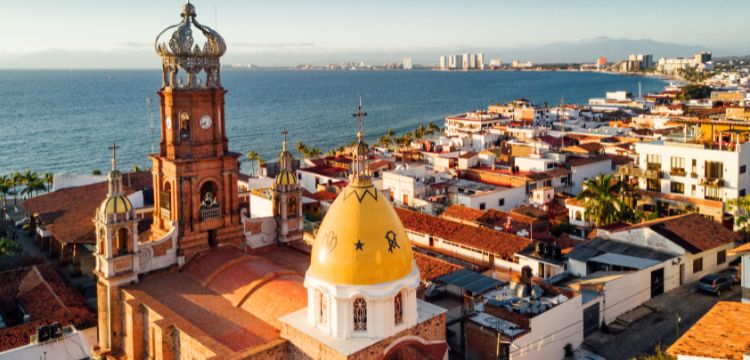
Puerto Vallarta, nestled on the Pacific coast, is famous for its stunning beaches and lively town atmosphere. This beach town in Mexico attracts retirees and families of all ages who enjoy a warm climate and vibrant nightlife. Outdoor activities like surfing, fishing, and hiking are popular in this expat community in Mexico. Unlike other parts of Mexico, one perk is how many people speak English here.
The charming Old Town offers authentic Mexican experiences, while the Marina area has modern amenities. Medical facilities are up-to-date, with English-speaking practitioners available. The cost of living varies by lifestyle, with choices from luxurious condos to quaint local homes. And expat life here is a good combination of outdoor activities, good dining, and a welcoming community.
Querétaro
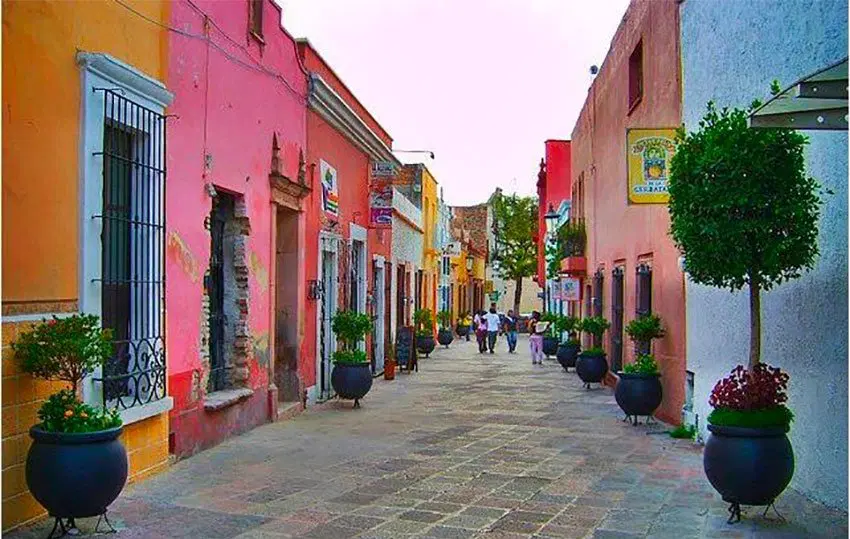
Queretaro is a modern city with a rich colonial history, making it an appealing destination for expats seeking a balance between tradition and progress. Known for its clean streets, safety, and excellent infrastructure, Querétaro offers a high quality of life. The historic center, a UNESCO World Heritage Site, is filled with charming plazas, baroque architecture, and vibrant cultural events.
Queretaro’s strong economy and thriving industries, such as manufacturing and IT, attract professionals and families of all ages. The city is also home to several international schools, making it a great option for those relocating with children. Additionally, the temperate climate and proximity to Mexico City make Queretaro a convenient and comfortable place to live. And this city has seen a recent boom in the international community.
Mérida
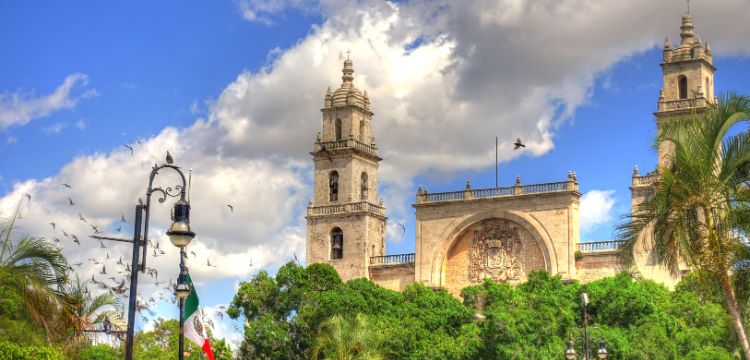
Merida, often called the “La Ciudad Blanca,” is known for its colonial architecture, vibrant culture, and warm Yucatecan hospitality. This city is a favorite among expats who value safety, a low cost of living, and a strong sense of community. Mérida’s bustling markets, stunning plazas, and frequent cultural events provide a dynamic lifestyle.
Located near the Gulf of Mexico, Mérida offers easy access to beautiful beaches like Progreso, and its proximity to ancient Mayan ruins like Uxmal and Chichen Itza makes it a history lover’s dream. The hot climate is offset by frequent breezes and shaded streets, and the city’s modern amenities, including excellent healthcare and world-class hospitals, make it a comfortable place to settle.
Huatulco
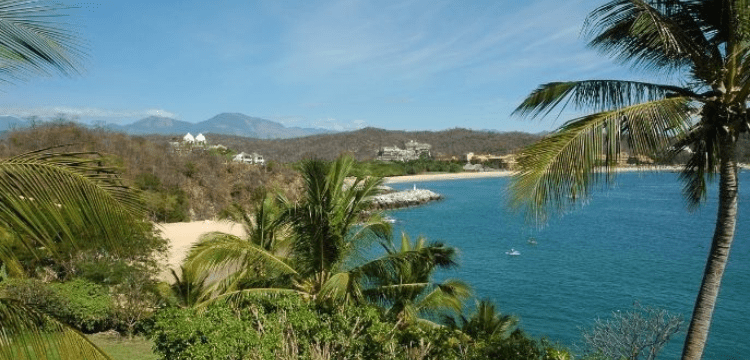
For those who love the beach and a more relaxed pace of life, Huatulco is an ideal destination. Located on the Pacific coast in Oaxaca, Huatulco is known for its nine bays and 36 pristine beaches, many of which are protected and offer unspoiled natural beauty.
Huatulco’s smaller size and lower population make it perfect for those seeking a quieter lifestyle. It’s a great spot for outdoor enthusiasts, with activities like snorkeling, surfing, and hiking readily available. The town also focuses heavily on sustainability, being one of Mexico’s most environmentally conscious destinations.
Legal Considerations for Expats in Mexico
Now that you know the top expat communities in Mexico, you should also be aware of the important legal considerations such as visa requirements, property ownership rules, and taxation laws. Understanding these key areas can help you make informed decisions and ensure a smoother transition.
Visa Requirements
To live in Mexico, you need to obtain the appropriate visa. Mexico’s Temporary and Permanent Resident Visas allow you to live in Mexico legally. These require proof of economic solvency or familial connections to a Mexican national or resident.
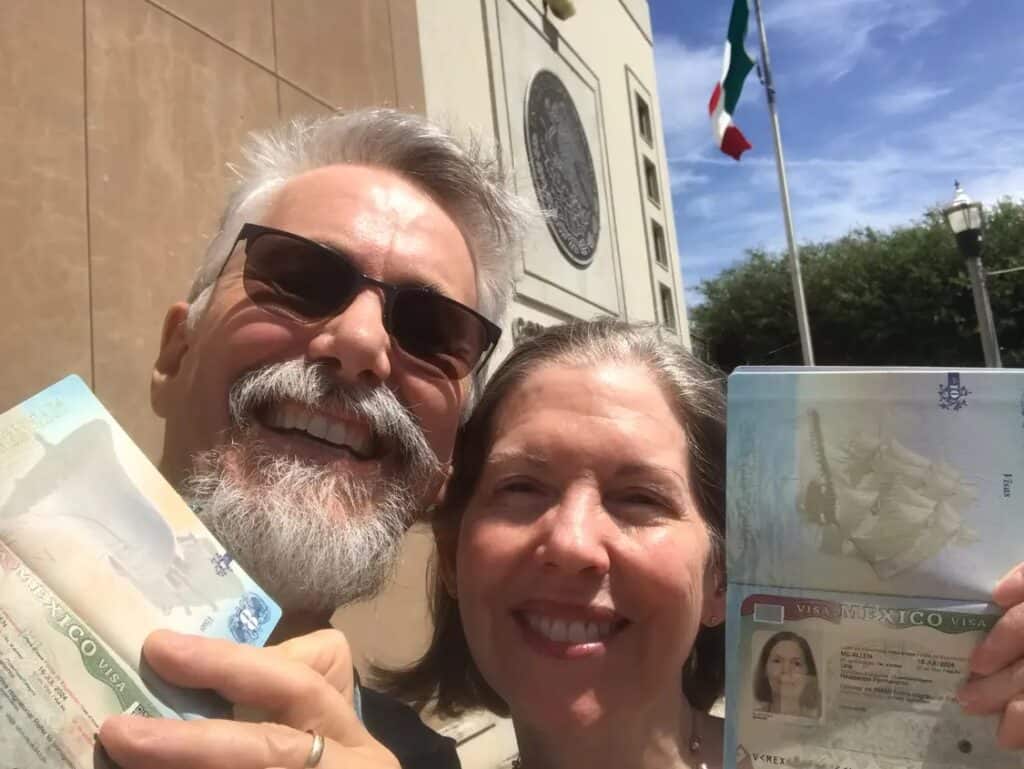
You can apply for these visas through a Mexican consulate in your home country. Expect to provide necessary documentation such as financial statements, a valid passport, and possibly a letter from your current employer. Ensuring your visa type aligns with your long-term plans is essential for a legal and stable residence in Mexico.
Learn more about Mexico’s Residency Visas and The Regularization Program
Property Ownership
Foreigners can own property in Mexico without restrictions! But there is one caveat: In areas outside the restricted zones, like coastal or border regions, you can own land directly. In restricted areas, use a Fideicomiso, a bank trust where the bank holds the title for you, allowing the effective purchase of land.
A Fideicomiso is typically valid for 50 years, renewable thereafter, and costs about $500 USD a year. You retain full control over the property, including the right to sell, lease, or will it to heirs. It’s recommended to consult with a local notary or legal expert to navigate the property purchase process to ensure compliance with Mexican laws and regulations.
Taxation Laws
Pay attention to Mexico’s taxation system. You are only liable for taxes in Mexico if your income comes from a Mexican source or if you are working in Mexico. Income Tax rates in Mexico are progressive, affecting how much tax you owe based on income level.
Mexico has tax treaties with many countries, including the USA, to avoid double taxation, so you need to check your home country’s agreement. If owning property or investing, be aware of possible capital gains tax. But do keep in mind Mexico DOES NOT tax your social security, pensions, or active incomes if they take place outside of Mexico.
Consulting a Mexican tax advisor can help you navigate these complexities and ensure compliance with both Mexican and home country obligations.
Cost of Living for Expats in Mexico
Your cost of living in Mexico will vary significantly by location and your lifestyle. Mexico is a large country, and cities like Mexico City and Monterrey can be more expensive compared to others like Mérida, Puebla, or San Cristóbal de las Casas.
Housing and Utilities
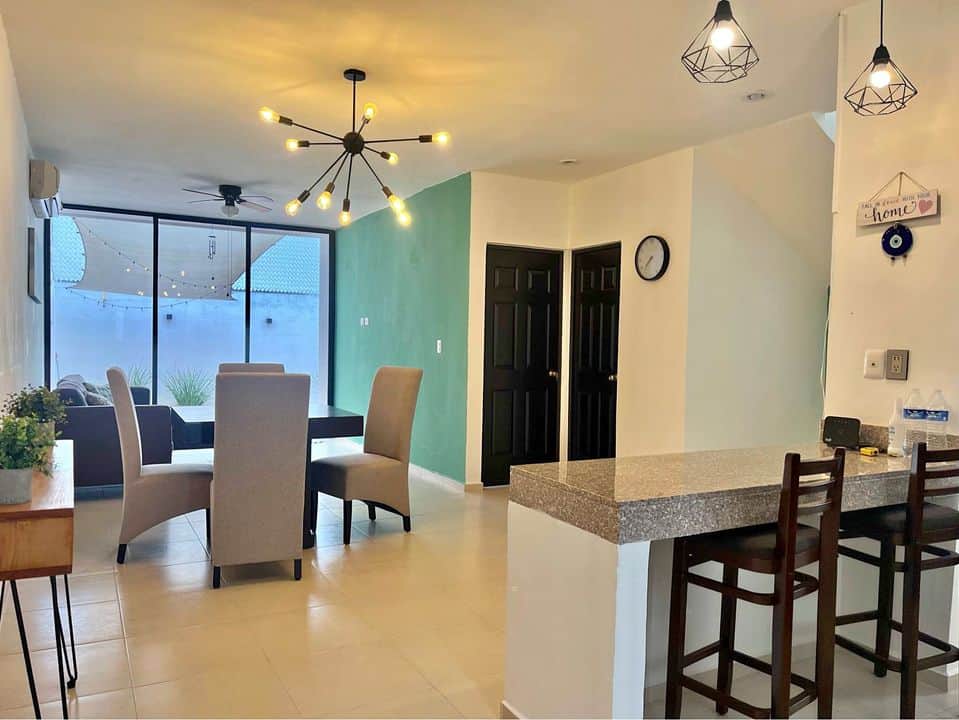
Housing costs in Mexico are generally lower than in many countries. Renting a two-bedroom apartment in a city center can range from $300 to $800 monthly. Outside the city center, this cost can drop significantly. Utility expenses, including electricity, water, and internet, typically range from $50 to $100 monthly.
Some areas may experience high electricity costs, particularly in warmer regions, due to air conditioning usage. Consider local climate and lifestyle needs when evaluating housing and utility expenses. It’s also prudent to budget for potential fluctuations in rent prices based on demand.
It’s very reasonable to say that a couple can live very comfortably anywhere in Mexico on a $2,500/Month Budget. Many families and people live on a lot less.
Healthcare Expenses
Healthcare in Mexico offers good quality at a fraction of the cost in the United States. Public healthcare through the IMSS and private options are available. Private healthcare often provides faster service with costs variable depending on location. A routine doctor’s visit can cost around $30–$50.
For significant medical procedures, consider health insurance to mitigate expenses. Insurance plans can cover a range of services and generally vary from $500 to $1,500 annually. Expats often seek local insurance tailored to their healthcare needs to access both public and private facilities.
Daily Expenses in Mexico
Daily expenses in Mexico can be manageable. Grocery shopping bills tend to be lower than in many countries north of the border, with local markets offering fresh produce affordably. Many couples report decreasing their grocery bills by about 15-30%. Dining out ranges widely, from $3 for street food to $20–$50 USD at upscale restaurants.

Transportation is another aspect where costs can be minimal. Public transit is affordable- usually costing less than $1 USD a ride. City buses charge a minimal fare, and taxis or ride-sharing apps like Uber provide convenient options. If you drive, budget for gas and potential tolls, keeping in mind that prices can vary by region.
Overall, careful budgeting and location choices greatly impact the cost of living for expatriates in Mexico, allowing for a comfortable lifestyle on various budgets.
Healthcare and Safety for Expats
Living in Mexico offers you access to affordable healthcare, with diverse options for insurance coverage and key safety considerations that enhance the living experience.
Access to Healthcare Services
In Mexico, you’ll find an extensive network of both public and private healthcare facilities. Public hospitals often provide accessible care, but they sometimes experience longer wait times. Many expats prefer private hospitals, which offer more personalized services and shorter waits.
Access to quality care can vary by region. Big cities like Merida, Mexico City, Guadalajara, and Queretaro boast modern facilities with English-speaking staff. It’s crucial to research and select a healthcare provider suited to your needs upon relocating.
Insurance Options
Having health insurance in Mexico is advisable. You can choose from private insurance plans, which are more comprehensive and flexible, or IMSS, which is the national public insurance available for residents.
Private insurance offers a range of coverage options and typically includes access to private hospitals. IMSS is cost-effective but may have limited services in rural areas. Evaluate your specific needs and budget carefully when selecting an insurance plan.
Safety Tips and Considerations
Mexico is generally safe for expats, but vigilance is important. Stay informed about the safety situation in your area and adhere to local advice. Avoid displaying expensive items in public or visiting high-risk areas, especially at night.
Maintain a list of emergency contacts, including local authorities and medical facilities. Establish routines to keep in touch with family and friends back home. Being aware and prepared can enhance your safety and well-being in Mexico.
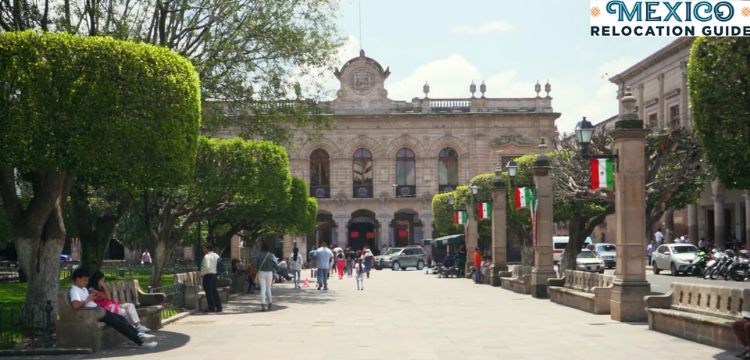
Cultural Integration and Language
Navigating cultural norms and the Spanish language is central to life in Mexican communities. Even if you move to a popular expat community in Mexico, It is essential to embrace local customs and engage with the local populace to fully integrate and enjoy the richness of the culture.
Learning Spanish
Learning Spanish is crucial. It opens doors to deeper interactions with locals and provides a smoother daily life experience. Classes are widely available with options ranging from formal language schools to informal conversation groups. Online resources, such as apps and language exchange platforms, can also aid in learning.
Practice is key. Engaging in everyday conversations, whether shopping at local markets or ordering at restaurants, enhances language skills. Being able to communicate not only helps in practical situations but also fosters more meaningful relationships with the local community.
Cultural Etiquette
Understanding cultural etiquette enhances your interactions and ensures respectful engagement with locals. Mexicans often emphasize polite greetings. A handshake or a kiss on the cheek is common, depending on the context. Punctuality can vary; being a little late is typically acceptable in social settings.
Gift-giving is appreciated, often with small items like chocolates offered during visits. Respect for family values and traditions is important, as these are central to Mexican culture. Avoiding controversial topics in early conversations can prevent misunderstandings and help maintain a positive rapport with those you meet.
Community Engagement
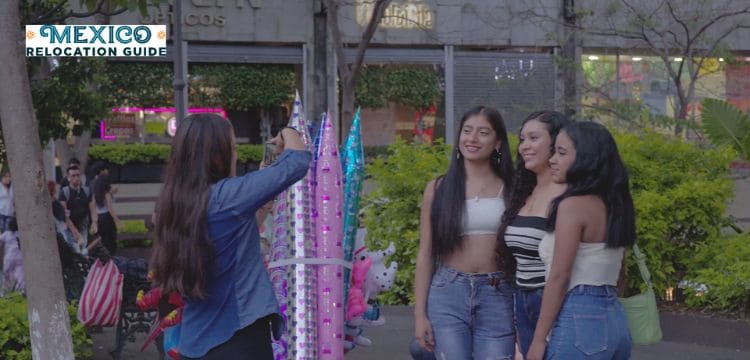
Engaging with the community is a rewarding experience. Volunteering with local organizations can provide insight into Mexico’s social fabric while contributing positively to the area. Joining clubs or groups, such as those for sports, arts, or shared hobbies, facilitates connections with both locals and newcomers. And finding your tribe will help you decide which is the best expat city for you.
Festivals are an excellent opportunity to immerse yourself in Mexican culture. Participating in events like Dia de los Muertos or local fiestas offers a window into regional customs and traditions. Engaging in cultural activities strengthens your integration, enabling you to enjoy a more fulfilling life within the community.
Education and Family Life
Moving to Mexico offers various educational opportunities for expat families, including access to international schools. Alongside education, there are numerous family-friendly activities available, enabling a smooth transition for families into the local culture.
Additional Reading: The ULTIMATE Guide on Best Places to Live in Mexico
International Schools
Mexico hosts a variety of international schools, providing education tailored to children from different backgrounds. These schools often follow American, British, or International Baccalaureate (IB) curricula, offering continuity for expat students. Most international schools are located in Mexican cities like Mexico City, Monterrey, Cancun, Puerto Vallarta, Queretaro, or Guadalajara.
Class sizes are generally smaller, allowing personalized attention. It’s essential to research each school and its accreditation status. Tuition fees can be high, so budgeting is crucial. Scholarships or financial aid might be available.
Family Activities
Mexico is abundant with family-oriented activities that cater to all age groups. You can explore outdoor adventures like hiking in national parks or relaxing on beautiful beaches along the coastline. Many cities also offer educational trips to historical sites such as Teotihuacan or Chichen Itza.
Dining and cultural activities are a part of everyday life. Local festivals and markets provide vibrant experiences for families to engage and learn about Mexican traditions. Parks and recreational areas in urban settings are well maintained, making them perfect for family outings. It’s common to see the entire family on the city’s central plaza for an evening walk and eat tacos or ice cream. Family is very important!

Adjusting As An Expat Family
Adapting to life here, whether it’s an expat community in Mexico or not, may present challenges for expat families, but it can be a rewarding experience. Language barriers can be minimized by enrolling in Spanish classes, which many schools offer. Engaging with local communities can ease the transition, fostering connections and support networks.
Healthcare is accessible, and families should ensure their insurance covers local facilities. Understanding local customs and adapting to a slower pace of life may take time, but patience will help you settle in. Embracing the culture and surroundings by integrating with the community supports a harmonious transition.
Real Estate for Expats
Navigating the real estate market in Mexico offers diverse options tailored to various needs. Understanding the differences between buying and renting can influence your decision, and finding the right property involves utilizing both online resources and local expertise.
Buying vs. Renting
Choosing between buying and renting in Mexico depends on your long-term plans and financial situation. Buying property may be ideal if you plan to stay for several years, as it can be an investment. Property values can appreciate, and foreigners are generally allowed to purchase real estate, with some restrictions near coastlines.
On the other hand, renting offers flexibility. Short-term rentals allow you to explore different neighborhoods before committing. Long-term leases often come with lower monthly costs compared to major cities in the US.
Be aware of the differences in rental agreements and tenant rights. Keep in mind that lease terms and conditions can vary significantly, and ensuring a clear, written contract can prevent disputes. And consider renting for at least 6 months to a year before buying real estate.
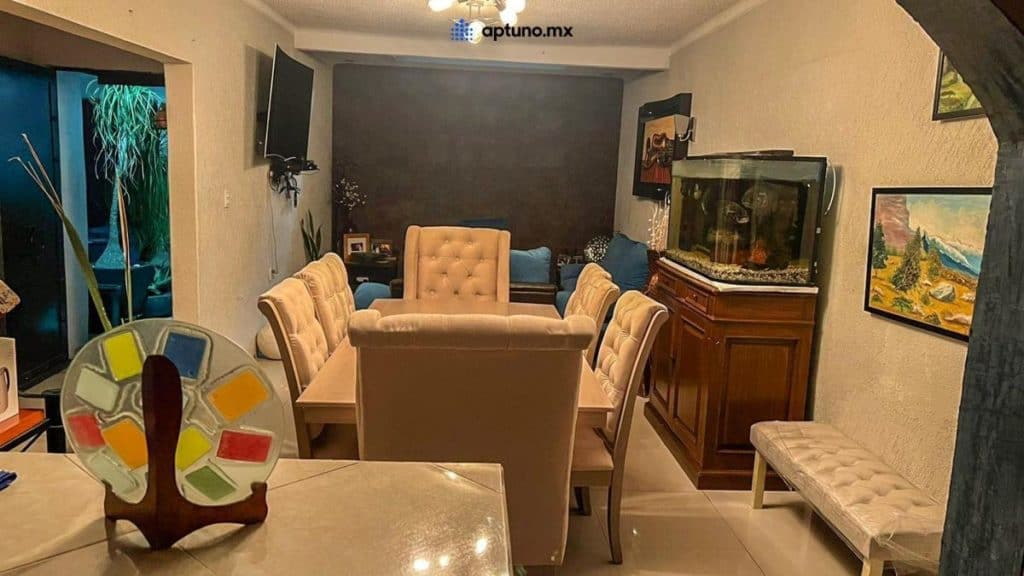
Finding a Home
To find the perfect home in Mexico, you can use online portals like Inmuebles24 and Vivanuncios. These platforms list properties across the country and let you filter by price, location, and home type. Real estate agents can provide valuable local insights and handle complex paperwork, especially if you’re not fluent in Spanish.
But be aware there are also scammers on those sites pretending to be professional realtors. It’s important to do your due diligence.
Visiting potential homes in person is crucial. Pay attention to infrastructure, safety, and proximity to essential services. Networking in expat communities in Mexico can offer recommendations and insights into different regions. It’s also wise to research the cost of living in various areas, which may influence your choice.
Living in One of The Expat Communities in Mexico
Choosing to live in Mexico offers various attractive elements, such as simplified visa processes and potential financial benefits for pensioners. Additionally, the country’s rich cultural backdrop and diverse geographical landscapes provide numerous lifestyle options.
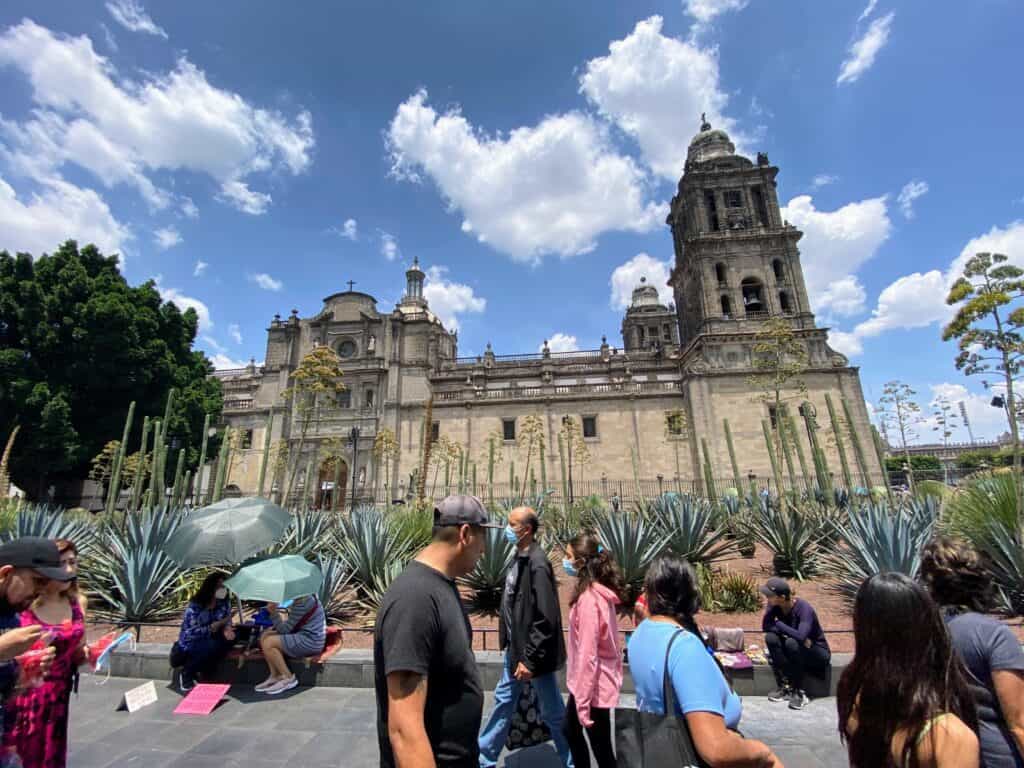
Retiree Benefits
Retirees in Mexico may enjoy various financial advantages, including a relatively low cost of living compared to countries like the United States and Canada. This allows your pension or savings to stretch further, covering essentials like housing, groceries, and healthcare more easily.
Some health insurance options are available for foreign retirees. While private healthcare is an option, take note that enrolling in Mexico’s national health program, IMSS offers affordability. Discounts and benefits at various businesses and cultural events often complement these financial advantages.
Lifestyle Considerations
Mexico offers a diverse lifestyle with a blend of modern amenities and traditional experiences, appealing to many retirees. Large cities like Mexico City, Queretaro, and Guadalajara provide urban conveniences and cultural activities, while coastal areas such as Puerto Vallarta and Cancún offer a relaxed beach environment.
Familiarizing yourself with local customs and some basic Spanish can enrich your experience. Safety and healthcare quality are important considerations; major cities have hospitals with internationally trained doctors. Social opportunities abound in expat communities in Mexico, which provide a supportive network to ease the transition into Mexican life.
Ready to Come On A Scouting Trip?
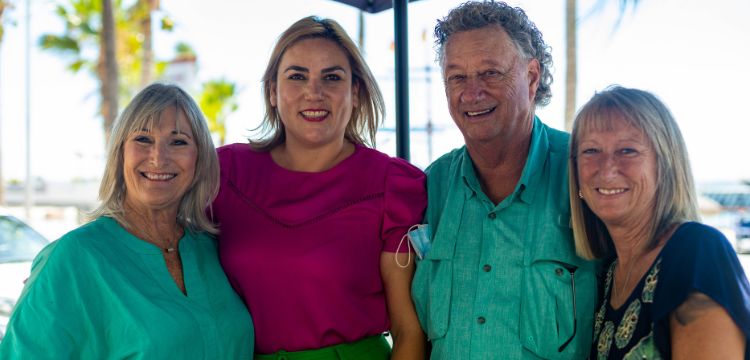
There are several expat communities in Mexico that appeal to so many. These areas offer unique cultural experiences and attract international residents with their appealing amenities, climates, and lifestyle options.
If you’re considering a move, why not explore these communities firsthand?
Book a private Mexico relocation tour and get an insider’s perspective on what it’s like to live in Mexico. Whether it’s the colonial charm of Querétaro, the relaxed beach vibes of Huatulco, or the modern comforts of Los Cabos, a local expert can guide you through the area and help you make an informed decision.
We hope to see you in Mexico!




